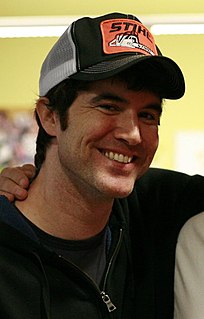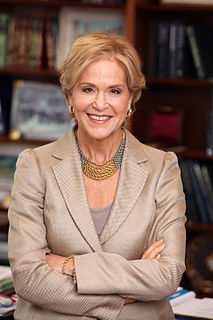A Quote by Lawrence Kudlow
Great innovators like Thomas Alva Edison, Henry Ford, and Andrew Carnegie didn't rely on government. There was hardly any of it in those days. More recently, Steve Jobs, Bill Gates, and Larry Ellison used genius to put brand-new ideas into production.
Related Quotes
Recently, there has been a profound change in how we think about corporate leadership. The 1990s was the era of celebrity leaders: we focused on Jack Welch, and not GE, on Bill Gates, and not Microsoft, on Steve Jobs, and not Apple, on Larry Ellison and not Oracle. But, on reflection, the records of most high-profile leaders have not withstood closer scrutiny. In almost all cases, it turns out that the success of organizations is due to the collective efforts of many, and not to the genius of a single, all-powerful individual at the top.
But for those who really want to make the world a better place, can we start looking at Bill Gates's path instead of Steve Jobs? I like my iPad, but Gates is one of the greatest heroes of our time. For me, that has nothing to do with Microsoft and everything to do with the Bill & Melinda Gates Foundation.
In the tech world, you can reel off great products in several ways. You can have the once-in-a-lifetime gut instincts of a Steve Jobs. You can have the brainiac coding skills of a Bill Gates, Larry Page, or Sergey Brin. Or, I learned, you can have the deep intellectual curiosity and stubbornness of a Jeff Bezos.
I don't think I've invented anything. Henry Ford didn't invent the car, and Steve Jobs didn't invent the cell phone, and he didn't invent the digital revolution, but he could adapt, put things together in creative ways. So I think in what we do there's a lot of "let's try it and sees," whether it's a new color or a new style. But we didn't invent cosmetics or lingerie. How we market them - style, color - those are the things that we do, but it isn't pure creation. It's putting together ideas. I truly believe there's nothing really new in the world.
Today, people idolize athletes and celebrities - and yes, highly successful and visionary business people like Bill Gates or Steve Jobs, but not the innovators who perhaps have not seen such high-flying levels of success. Can anyone name the inventors of GPS, which has such a huge impact on our lives today?
People believe that companies have always had strategies, dating back at least to likes of Henry Ford or Andrew Carnegie, maybe to the contractors who built the Pyramids. As it turns out, it was only in the 1960s and 1970s that a new breed of "business intellectuals" began to develop the intellectual framework that allowed companies to look at the three "C's" of any good strategy - namely their costs, customers, and competitors - in an integrated way.
As a writer, politician, scientist, and businessman, [Ben] Franklin had few equals among the educated of his day-though he left school at ten. (...)Boys like Andrew Carnegie who begged his mother not to send him to school and was well on his way to immortality and fortune at the age of thirteen, would be referred today for psychological counseling; Thomas Edison would find himself in Special Ed until his peculiar genius had been sufficiently tamed.
Government investment unlocks a huge amount of private sector activity, but the basic research that we put into IT work that led to the Internet and lots of great companies and jobs, the basic work we put into the health care sector, where it's over $30 billion a year in R&D that led the biotech and pharma jobs. And it creates jobs and it creates new technologies that will be productized. But the government has to prime the pump here. The basic ideas, as in those other industries, start with government investment.
When Steve Jobs toured Xerox PARC and saw computers running the first operating system that used Windows and a mouse, he assumed he was looking at a new way to work a personal computer. He brought the concept back to Cupertino and created the Mac, then Bill Gates followed suit, and the rest is history.

































